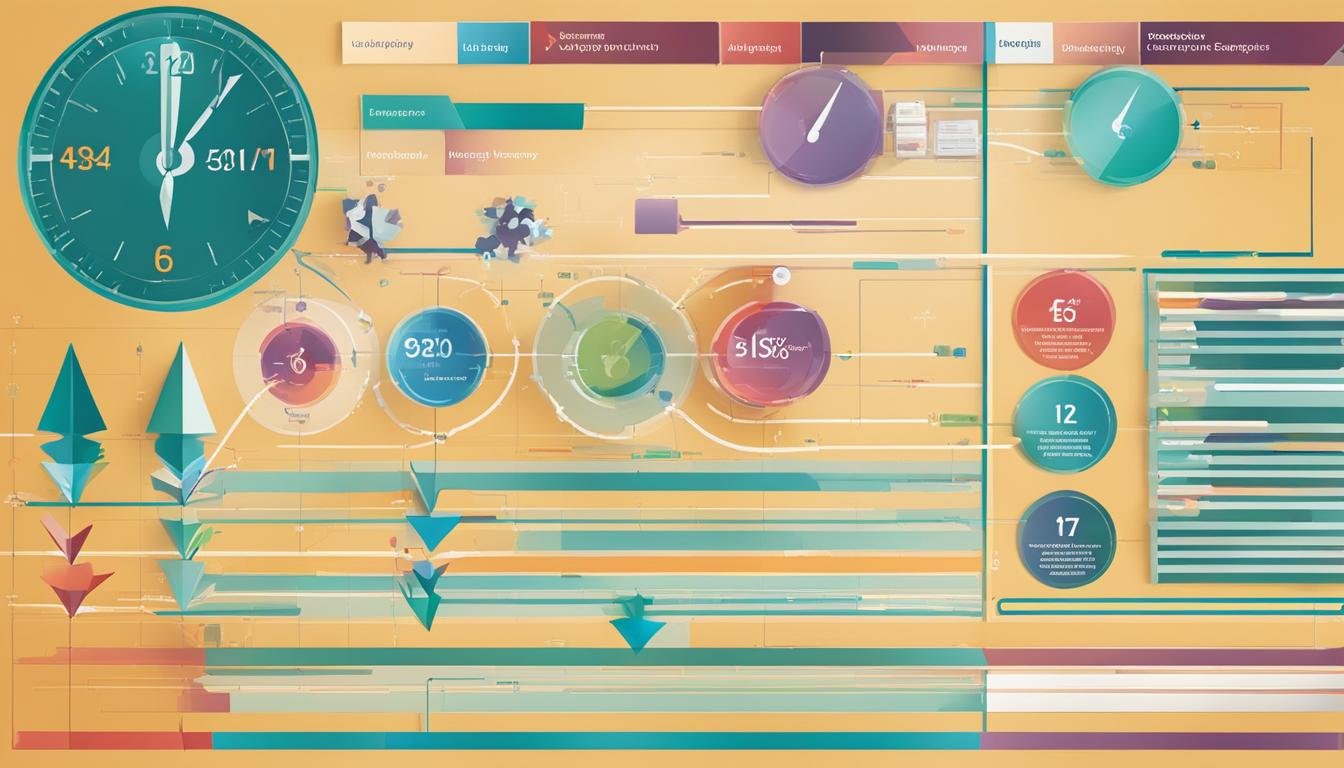Gaining control over your personal finances is crucial for achieving your financial goals. Creating and sticking to a personal budget is an effective way to manage your money and keep your finances on track. In this article, I will guide you through the process of creating a personal budget and provide you with tips and strategies to help you stick to it.
When it comes to creating a personal budget, it’s important to start with a clear understanding of your income and expenses. Take some time to gather all your financial information, including your income sources, bills, and other discretionary expenses. This will give you a comprehensive picture of your financial situation.
Once you have a clear understanding of your income and expenses, it’s time to set specific financial goals. Whether you want to save for a vacation, pay off debt, or build an emergency fund, having clear goals will give your budget a purpose and motivate you to stick to it.
Next, you’ll need to allocate your income to various categories in your budget. This includes essentials like rent or mortgage payments, utilities, groceries, and transportation expenses. It’s important to prioritize these expenses and allocate enough money to cover them before allocating funds for discretionary expenses like entertainment or dining out.
To ensure that you stick to your budget, it’s essential to track your spending regularly. This will help you identify any areas where you may be overspending and make adjustments accordingly. Many budgeting apps and software are available to simplify the tracking process and provide you with a clear overview of your expenses.
Lastly, adjusting your budget as needed is important. Life is unpredictable, and unexpected expenses may arise. Be flexible and willing to adjust your budget to accommodate these changes. Remember, the key to successful budgeting is consistency and adaptability.
Key Takeaways:
- Creating a personal budget is crucial for better money management and achieving financial goals.
- Start by gathering all your financial information, including income sources and expenses.
- Set specific financial goals to give your budget a purpose and motivation.
- Allocate your income to different categories, prioritizing essential expenses.
- Track your spending regularly to identify areas where you may be overspending.
By following these steps and implementing these tips, you’ll be well on your way to creating a personal budget that works for you. Remember, budgeting is a skill that takes time to develop, so be patient and persistent. With a solid budget in place, you’ll have greater control over your finances and be able to achieve your financial goals more effectively.
Tips for Sticking to Your Budget
Sticking to a budget requires commitment and financial discipline. Here are some helpful tips to help you stay on track:
- Track your expenses: Monitor your spending habits by keeping a record of all your expenses. This will help you identify areas where you can cut back and prioritize your spending.
- Set realistic goals: When creating a budget, establish achievable financial goals that motivate you to stick to your plan. Whether it’s saving for a vacation or paying off debt, having clear objectives will keep you focused.
- Use cash or a debit card: Avoid relying on credit cards, as they can easily lead to overspending. Instead, use cash or a debit card to ensure you’re only spending what you have budgeted for.
- Automate your savings: Set up automatic transfers to a separate savings account to make saving a habit. This way, you won’t even have to think about it and your savings will continue to grow.
- Meal plan and shop with a list: Planning your meals in advance and creating a grocery list will help you avoid impulse purchases and stick to your budget at the grocery store.
- Avoid temptation: Identify your spending triggers and find ways to avoid them. If online shopping is a weakness, unsubscribe from promotional emails and delete shopping apps from your phone.
- Stay motivated: Remind yourself of the financial goals you’ve set and the progress you’re making. Celebrate small wins along the way to stay motivated and encouraged.
Remember, sticking to a budget is a journey that requires consistency and perseverance. By implementing these tips and staying committed to your financial goals, you’ll develop strong budgeting habits and achieve financial success.
Steps to Create an Effective Budget
Creating an effective budget is crucial for proper financial planning and achieving your long-term goals. By following these budgeting steps, you can gain better control over your finances and make informed decisions to improve your financial well-being.
1. Identify Your Income and Expenses: Start by listing all your sources of income and categorizing your expenses. This will help you understand your financial inflows and outflows and identify areas where you can potentially save.
2. Set Financial Goals: Determine your short-term and long-term financial goals, such as saving for a down payment on a house, paying off debt, or building an emergency fund. Setting clear goals will give you a sense of purpose and motivation to stick to your budget.
3. Track Your Spending: Keep track of your spending habits by recording your expenses regularly. This will give you insight into where your money is going and help you identify areas where you can cut back or make adjustments to stay within your budget.
4. Create a Realistic Budget: Based on your income, expenses, and financial goals, create a realistic budget that aligns with your financial situation. Allocate your income to different expense categories, such as housing, transportation, groceries, and entertainment, ensuring that your expenses do not exceed your income.
5. Review and Adjust Regularly: Review your budget periodically and make necessary adjustments to accommodate any changes in your income or expenses. It’s important to be flexible and adaptable as your financial situation may evolve over time.
By following these steps, you can create an effective budget that empowers you to take control of your finances and work towards achieving your financial goals.




